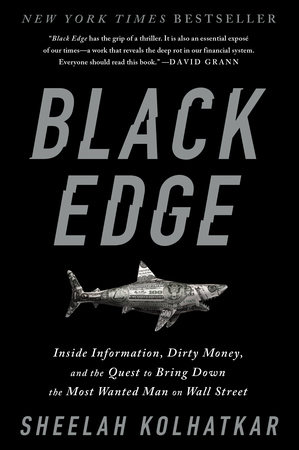Today I would like to recommend a book on finance, on one of the largest financial crimes up to now. It is the case of insider trading at SAC, where they plead guilty and a settlement was achieved after paying $1.8 billion. In Black Edge you'll understand better how some hedge funds have been trading on private information rather than with stocks. You'll know how research-physicians received more money from Wall Street rather than from their own salary. And specially you'll understand how the case of bapi by Elan-Wyeth evolved with plenty of details.
I have insisted in this blog that short selling strategies should be banned. This book provides an excellent argument for it. The incentive for insider trading in pharmaceutical research is huge, and those that are able to get short earlier when there are bad news, get the most!
Some statements from the epilogue:
The financial industry has evolved to be so complex that large parts of it are almost completely beyond the reach of regulators and law enforcement. Wall Street’s most successful enterprises are constantly pushing into the frontier; every time the law looks like it’s catching up, they move farther away. There is a perception that in the years after the Milken era, and especially since the financial crisis of 2008, it has become almost impossible, due to a lack of will or expertise, to prosecute corporate criminals who operate at the highest levels. The fear of suffering embarrassing losses after long, expensive trials has led to a kind of paralysis in law enforcement. The Justice Department was unable, or unwilling, to bring any senior Wall Street figures to face criminal charges for the widespread fraud that swept the financial system prior to 2008. Instead, it extracted billions of dollars in fines from the world’s largest banks.
The hedge fund industry created unprecedented fortunes for a new generation of Wall Street traders whose primary innovation was to find ways to make more aggressive bets in the stock market. Cohen was a pioneer, the creator of a trading empire designed to gain an edge over less sophisticated investors. Years later, after paying the largest fines in the history of financial crime—and seeing a dozen of his employees implicated in insider trading—Cohen emerged from the crisis that engulfed his company as one of the world’s wealthiest men.
